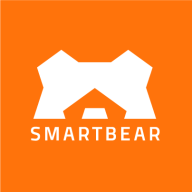

IBM API Connect and SwaggerHub serve overlapping use cases in the API management sector, but IBM API Connect seems to have the upper hand for large enterprises due to its integration capabilities and scalability, while SwaggerHub is preferred for its superior design and ease of use.
Features: IBM API Connect provides robust lifecycle API management, secure gateway services, and detailed analytics, making it ideal for enterprises managing APIs in large environments. SwaggerHub focuses on collaborative API design with auto-generated documentation and seamless integration with popular development environments, making it essential for teams prioritizing precision.
Room for Improvement: IBM API Connect could enhance user interface simplicity and streamline excessive configuration steps, improving onboarding for new users. Expanding its documentation resources and enhancing tools for real-time monitoring are also areas to consider. SwaggerHub, while excellent in API design, could improve its scalability for larger enterprise needs, expand integration options beyond popular development environments, and offer more robust analytics capabilities to enhance decision-making insights.
Ease of Deployment and Customer Service: IBM API Connect offers a flexible deployment model, supporting both cloud and on-premises setups, with extensive support for seamless integration. Its customer service is strong, ensuring smooth deployment processes. SwaggerHub's cloud-based approach simplifies deployment for agile teams, supported by efficient design-focused customer service channels.
Pricing and ROI: IBM API Connect involves a higher initial setup cost but offers substantial ROI through its comprehensive API management capabilities, particularly for enterprises with large-scale needs. SwaggerHub's more accessible pricing allows for quicker ROI through efficient design tools and faster deployment, appealing to budget-conscious organizations focused on rapid development.
| Product | Market Share (%) |
|---|---|
| IBM API Connect | 4.9% |
| SwaggerHub | 1.5% |
| Other | 93.6% |

| Company Size | Count |
|---|---|
| Small Business | 19 |
| Midsize Enterprise | 10 |
| Large Enterprise | 61 |
| Company Size | Count |
|---|---|
| Small Business | 3 |
| Large Enterprise | 9 |
IBM API Connect is an API management tool providing robust security, seamless REST and SOAP conversion, and flexible deployment options for diverse cloud environments. It aids organizations in securing and monetizing their APIs while streamlining the development process.
IBM API Connect offers features like a security gateway, API lifecycle management, and integration with DataPower. Its intuitive interface enhances ease of use, supporting extensive analytics and traffic management. However, there are areas for improvement in automation, system integration, and user configuration. Organizations can deploy API Connect on-premises or in the cloud, delivering secure access control and analytics for banking, financial services, and government sectors. Compliance with standards like PSD2 ensures secure external API exposure and integration with multiple systems.
What are the most important features of IBM API Connect?In specific industries like banking, financial services, and government sectors, IBM API Connect plays a crucial role in API management, orchestration, and regulation tasks. It provides secure access, control, and compliance with industry standards, serving as an essential gateway for data exchange and integration across multiple systems.
SwaggerHub is an integrated API Development platform, built for teams, that brings the core capabilities of the Swagger framework to design, build, document and deploy APIs. SwaggerHub enables development teams to collaborate and coordinate the entire lifecycle of an API with the flexibility to integrate with the toolset of your choice.
We monitor all API Management reviews to prevent fraudulent reviews and keep review quality high. We do not post reviews by company employees or direct competitors. We validate each review for authenticity via cross-reference with LinkedIn, and personal follow-up with the reviewer when necessary.